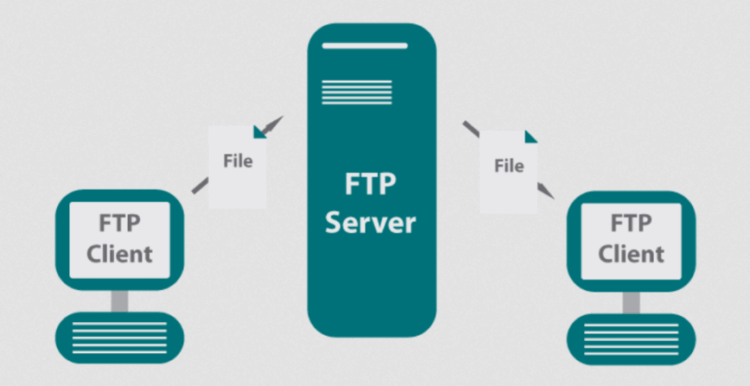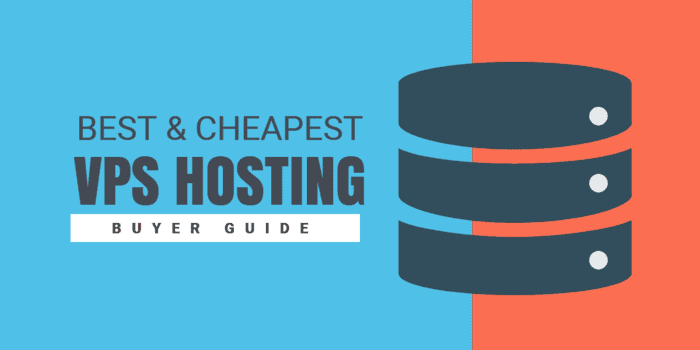Embarking on the journey of selecting the perfect hosting for your startup is crucial for its success. From factors to consider to budget considerations and security measures, this guide covers it all to help you make an informed decision.
As you delve deeper into the intricacies of hosting options, you'll be equipped with the knowledge needed to navigate the realm of web hosting with confidence.
. Choose a hosting provider that includes a robust firewall as part of their security measures.
Factors to Consider when Choosing Hosting
When selecting hosting for a startup, several key factors need to be taken into consideration to ensure the smooth operation and growth of the business. Factors such as reliability, cost, scalability, and security play a crucial role in determining the most suitable hosting option for your startup.Types of Hosting Options
- Shared Hosting: This type of hosting involves sharing server resources with other websites. It is a cost-effective option for startups with low traffic.
- VPS Hosting: Virtual Private Server (VPS) hosting offers more control and dedicated resources compared to shared hosting, making it ideal for startups with moderate traffic.
- Dedicated Hosting: With dedicated hosting, your startup gets exclusive use of a server, providing maximum performance and security. This option is suitable for high-traffic startups that require customization.
- Cloud Hosting: Cloud hosting offers scalability and flexibility by allowing you to scale resources up or down based on demand. It is a popular choice for startups expecting rapid growth.
Importance of Scalability and Flexibility
Scalability and flexibility are crucial factors to consider when choosing hosting for a growing startup. As your business expands, your hosting needs may change, requiring more resources to accommodate increased traffic and data storage. Opting for a hosting solution that offers scalability allows your startup to easily adjust resources without downtime or disruptions. Additionally, flexibility in hosting enables your startup to adapt to changing market conditions and technology advancements, ensuring long-term sustainability and competitiveness in the industry.Budget Considerations
When it comes to choosing hosting for your startup, one of the crucial factors to consider is your budget. Balancing cost and quality is key to ensuring that you get the best value for your money while meeting your startup's needs.To help you navigate the budget considerations when selecting hosting for your startup, here are some tips:Cost-Effective Hosting Solutions
- Look for startup-friendly packages: Many hosting providers offer special plans tailored for startups, which often come at a lower cost compared to standard packages.
- Consider shared hosting: Shared hosting is a cost-effective option where you share server resources with other websites. While it may have some limitations, it can be a good starting point for startups with limited budgets.
- Opt for cloud hosting: Cloud hosting is scalable and allows you to pay only for the resources you use. This pay-as-you-go model can be more cost-effective for startups, especially during the initial stages.
Risks of Extremely Cheap Hosting Services
- Unreliable performance: Extremely cheap hosting services may result in slow loading times, downtime, and poor website performance, which can negatively impact user experience and rankings.
- Limited customer support: Low-cost hosting providers may offer limited customer support, making it challenging to resolve technical issues promptly.
- Security vulnerabilities: Cheap hosting services may lack robust security measures, leaving your website vulnerable to cyber threats and attacks.
Performance and Reliability
When it comes to hosting for a startup, performance and reliability are crucial factors that can significantly impact the success of your business. A reliable hosting provider ensures that your website is always up and running smoothly, while good performance in terms of speed and uptime can enhance user experience and help in rankings.Comparing Hosting Providers
- Provider A: Offers 99.9% uptime guarantee and lightning-fast SSD storage for optimal speed.
- Provider B: Boasts a proven track record of reliability with redundant servers and 24/7 monitoring.
- Provider C: Focuses on performance optimization with advanced caching mechanisms and CDN integration.
Best Practices for Reliability
- Regularly backup your website to prevent data loss in case of unexpected downtime.
- Choose a hosting provider with a solid reputation and good customer reviews to ensure reliability.
- Monitor your website's performance metrics and address any issues promptly to maintain uptime.
Security Measures
When it comes to choosing hosting for your startup, security should be a top priority. Ensuring your website is secure not only protects your data but also builds trust with your customers. Here are some essential security features to look for in hosting:SSL Certificates
SSL certificates are crucial for encrypting data transmitted between your website and its users. This encryption helps protect sensitive information such as login credentials, payment details, and personal data. Look for hosting providers that offer free SSL certificates or make it easy to install them.Firewalls
Firewalls act as a barrier between your website and potential threats from the internet. They monitor incoming and outgoing traffic, blocking malicious activity and unauthorized accessBackups
Regular backups are essential to ensure that you can quickly recover your website in case of data loss or a security breach. Hosting providers that offer automated backups, as well as the option to create manual backups, can provide peace of mind knowing your data is safe.Recommended Hosting Providers
When it comes to security-focused hosting providers, some options stand out for their robust security measures. Providers like SiteGround, Bluehost, and InMotion Hosting offer SSL certificates, firewalls, and regular backups as part of their hosting packages. These providers also have strong reputations for their commitment to security, making them reliable choices for startups looking to protect their online presence.Customer Support
Customer support plays a crucial role in the hosting selection process for startups. It is essential to have reliable support available whenever issues or questions arise regarding your website hosting. The quality of customer support can greatly impact the overall experience and success of your startup.Importance of 24/7 Support
Having access to 24/7 customer support is vital for startups, as issues with your website can arise at any time. Whether it's a technical problem, security concern, or simply a question about your hosting plan, knowing that you can reach out to a support team at any hour provides peace of mind. A quick response time is equally important, as delays in resolving issues can lead to downtime for your website, affecting your business operations and reputation.Reviews of Customer Support from Hosting Providers
When choosing a hosting provider for your startup, it is beneficial to research and read reviews about the quality of their customer support. Look for feedback from other users regarding response times, helpfulness, and overall satisfaction with the support team. Some hosting providers may offer multiple channels for support, such as live chat, phone, or ticketing systems, so consider which options are most convenient for your needs.Personal Experiences
Personal experiences with customer support can vary greatly among hosting providers. Some users may praise a provider for their prompt and effective responses to inquiries, while others may express frustration over long wait times or unhelpful assistance. Consider reaching out to the support team of potential hosting providers with any pre-sales questions to get a sense of their responsiveness and expertise.Conclusion
In conclusion, customer support is a critical factor to consider when selecting hosting for your startup. Ensure that the hosting provider offers 24/7 support with a quick response time to address any issues promptly. Researching reviews and seeking personal experiences can help you gauge the quality of customer support offered by different hosting providers, ultimately contributing to a positive hosting experience for your startup.Scalability and Growth
When choosing a hosting provider for your startup, it's crucial to consider scalability options as your business grows. Here's how you can assess a hosting provider's scalability features and plan for future growth:Assessing Scalability Options
Before committing to a hosting provider, look into their scalability options. Check if they offer flexible hosting plans that can accommodate your startup's growth. Ensure that the provider can easily upgrade your resources as needed without causing downtime or disruptions to your website.- Consider providers that offer scalable resources such as CPU, RAM, and storage to meet your increasing demands.
- Look for hosting plans that allow you to easily upgrade or downgrade based on your changing needs.
- Evaluate if the provider offers features like load balancing or CDN integration to handle increased traffic efficiently.
Transitioning to Higher Hosting Plans
As your startup expands, you may need to transition to a higher hosting plan to accommodate the growth. Here's the process of upgrading your hosting plan smoothly:- Assess your current hosting needs and identify the resources that need to be scaled up.
- Consult with your hosting provider to understand the options available for upgrading your plan.
- Plan the transition carefully to minimize downtime and ensure a seamless upgrade process.
Successful Startup Examples
Several successful startups have effectively scaled their hosting services to support their growth. Here are some examples:Uber: Uber started as a small ride-sharing service and scaled rapidly by investing in scalable hosting solutions to handle the increasing demand for their services.
Slack: Slack's collaboration platform experienced exponential growth, and they managed it effectively by choosing hosting providers that offered scalable options to support their expanding user base.










